“ The army marches like waves, the army marches forward” in the repressed and explosive sound of “ Hanoi echoing the military song” 70 years ago (October 10, 1954 – October 10, 2024), we came across the documentary film by famous director Roman Carmen, which is being preserved by artist and cinematographer Luu Quoc Vinh. The film titled Vietnam (Vietnam on the road to victory) condensed a vast space from “the first to leave without looking back” to the Dien Bien Phu victory “famous in five continents, shaking the world” and “five city gates welcoming the advancing army”… is an epic with many historical values for Thang Long – Hanoi in particular and Vietnam in general.
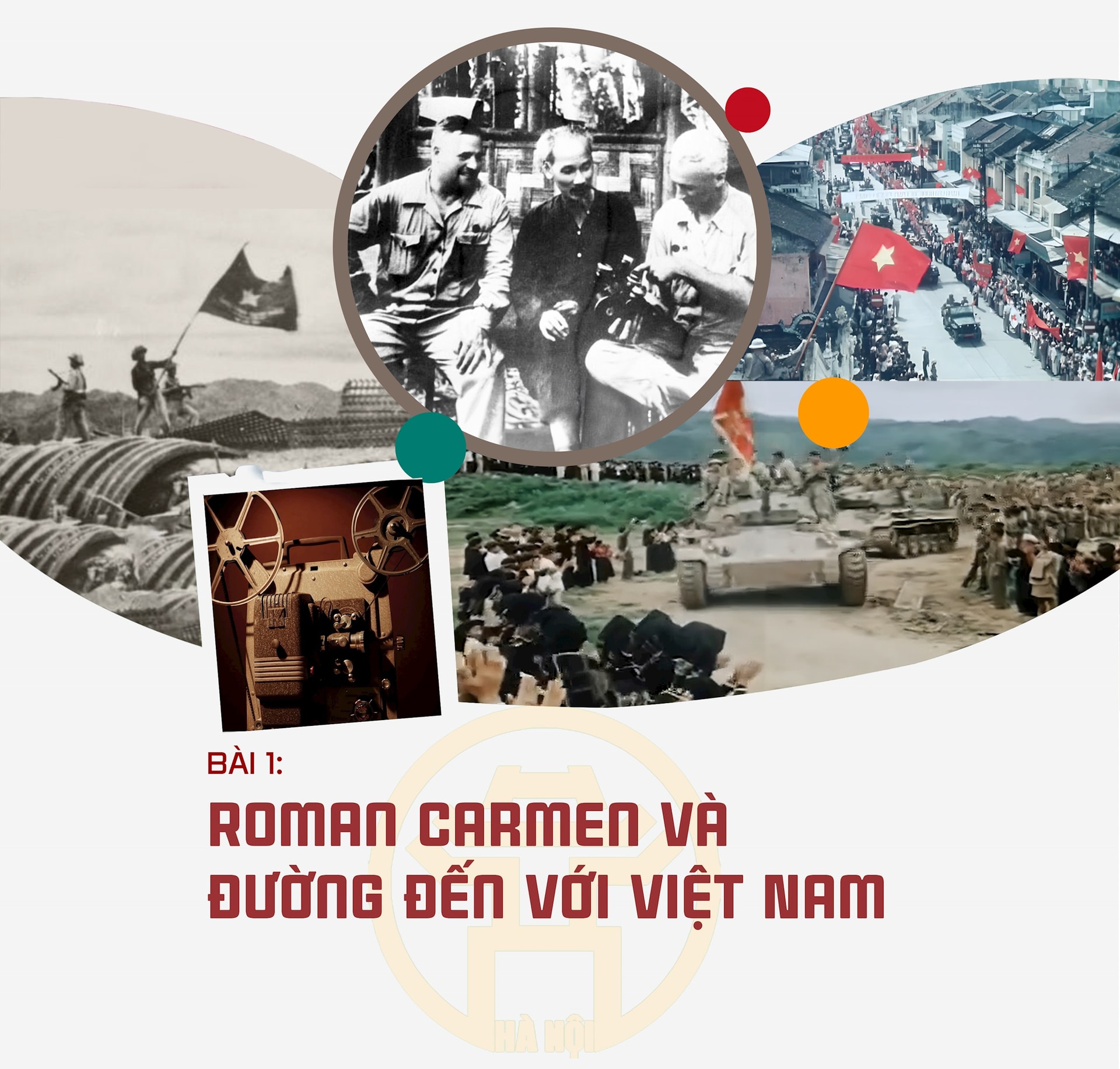
Cinematographer Luu Quoc Vinh showed us the Russian version that he is keeping as a precious treasure that the predecessors of the "cinema village" passed on to the next generation. And, from the pieces of his countless stories and the historical data found, we can imagine more about the story of the Soviet filmmaker with the famous art documentary called "Vietnam". Artist - soldier Roman Carmen with his special affection for a heroic country recorded the sacred and emotional historical moments of the Vietnamese people.

Having stood in the ranks of the Soviet Red Army in the fierce, fierce campaigns that marked the turning point of the Great Patriotic War such as Leningrad, Stalingrad... or the siege of Berlin - the lair of Nazi Germany, Roman Carmen recorded unforgettable moments of World War II and became one of the greatest documentary filmmakers of the 20th century. That is why he was chosen by the Soviet leaders to come to Vietnam to record images of the great historical moment of a heroic nation as "a symbol of hope for all oppressed and enslaved peoples".
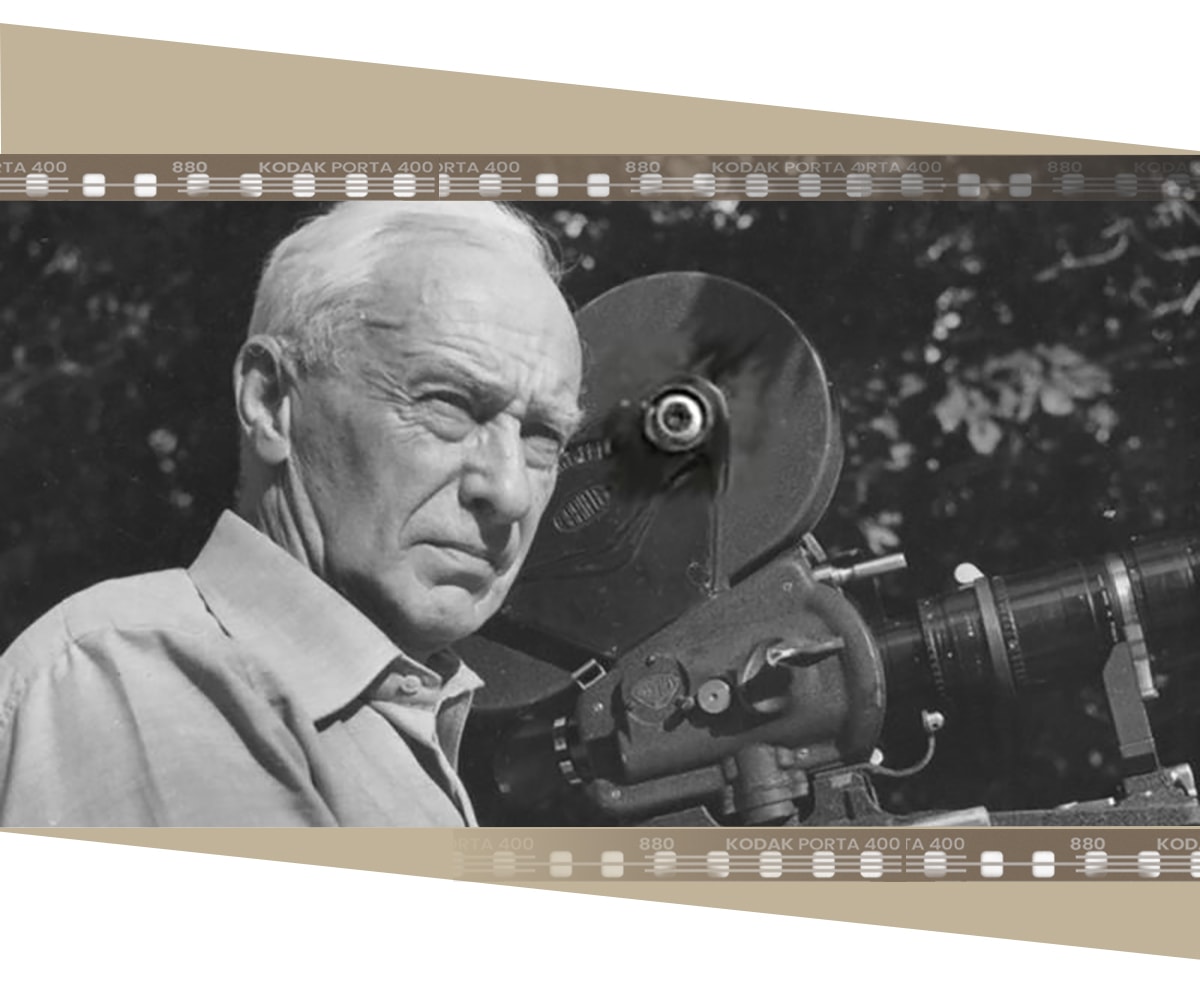
From the documents left by Dr. Anatoly Sokolov - Institute of Oriental Studies (Russian Academy of Sciences ), it can be imagined that: The Dien Bien Phu victory not only brought the indomitable spirit of the Vietnamese people in the fight for national independence and freedom to the world, but also proved a historical inevitability that "the colonial regime cannot escape death and has no future".
“The Soviet people were very excited to hear about the Dien Bien Phu victory of their Vietnamese brothers and wanted to directly record these glorious feats. Therefore, a Soviet documentary film crew set off for Vietnam at that historic moment. The film crew consisted of three people: the famous director Roman Carmen and two cameramen Epghen Mukhin and Vladimia Eshurin. The mission of the Soviet filmmakers was to make a film recording the struggle of the Vietnamese people for their country’s independence…”.
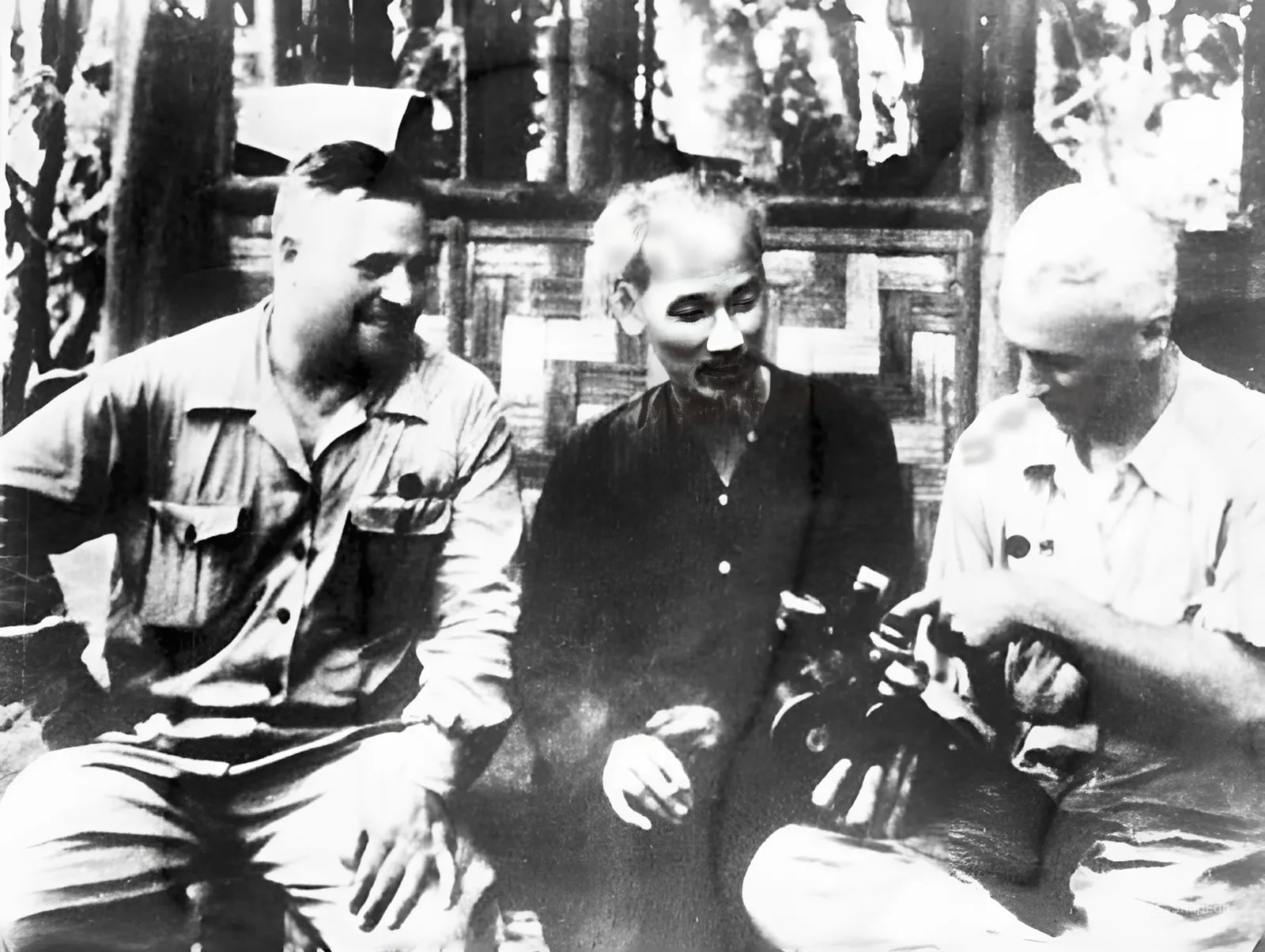
President Ho Chi Minh with Roman Carmen and Soviet filmmakers in the Viet Bac resistance base. Photo: Archive
Before leaving Moscow, the film crew met Mr. Nguyen Luong Bang - the Vietnamese Ambassador to the Soviet Union at that time. "Our people are eagerly waiting for the Soviet comrades to come to Vietnam" - not only satisfying many questions, Mr. Nguyen Luong Bang also brought the filmmakers ideas on transporting filming equipment, storing films...
“You will have to do a lot of difficult and heavy work, but our government and social organizations will help you and do everything possible in the complicated conditions of wartime,” Ambassador Nguyen Luong Bang told Soviet filmmakers.
On May 16, 1954, Director Roman Carmen and his colleagues boarded a plane specially designed for the film crew with more than 900kg of film equipment and materials. At that time, there were no long-haul planes, so they had to stop at many places and after two days they reached Beijing. Here, the film crew transferred planes to a city in southern China, the rest of the journey took a train to the border and then by road. It was not until May 24, 1954 that filmmakers Roman Carmen, Epghen Mukhin, and Vladimia Eshurin crossed the China-Vietnam border to enter the Viet Bac War Zone.

In Viet Bac, Roman Carmen and his colleagues from Russia met President Ho Chi Minh at his bamboo house in the Viet Bac forest and recorded the special impression of that first contact: “A man wearing a simple brown cotton outfit with a deep Vietnamese collar came out to meet us and said in fluent Russian: “Hello, comrades!”. I was impressed by his modesty, extreme friendliness, clear logical thinking, and ability to quickly grasp the essence of the problem… President Ho Chi Minh promised to help us, but refused to let us travel by car during the day, even though we assured him that we were experienced journalists, used to working at the front during the years of the Patriotic War…”. During the filming process, director Roman Carmen often sought out President Ho Chi Minh to receive practical advice.
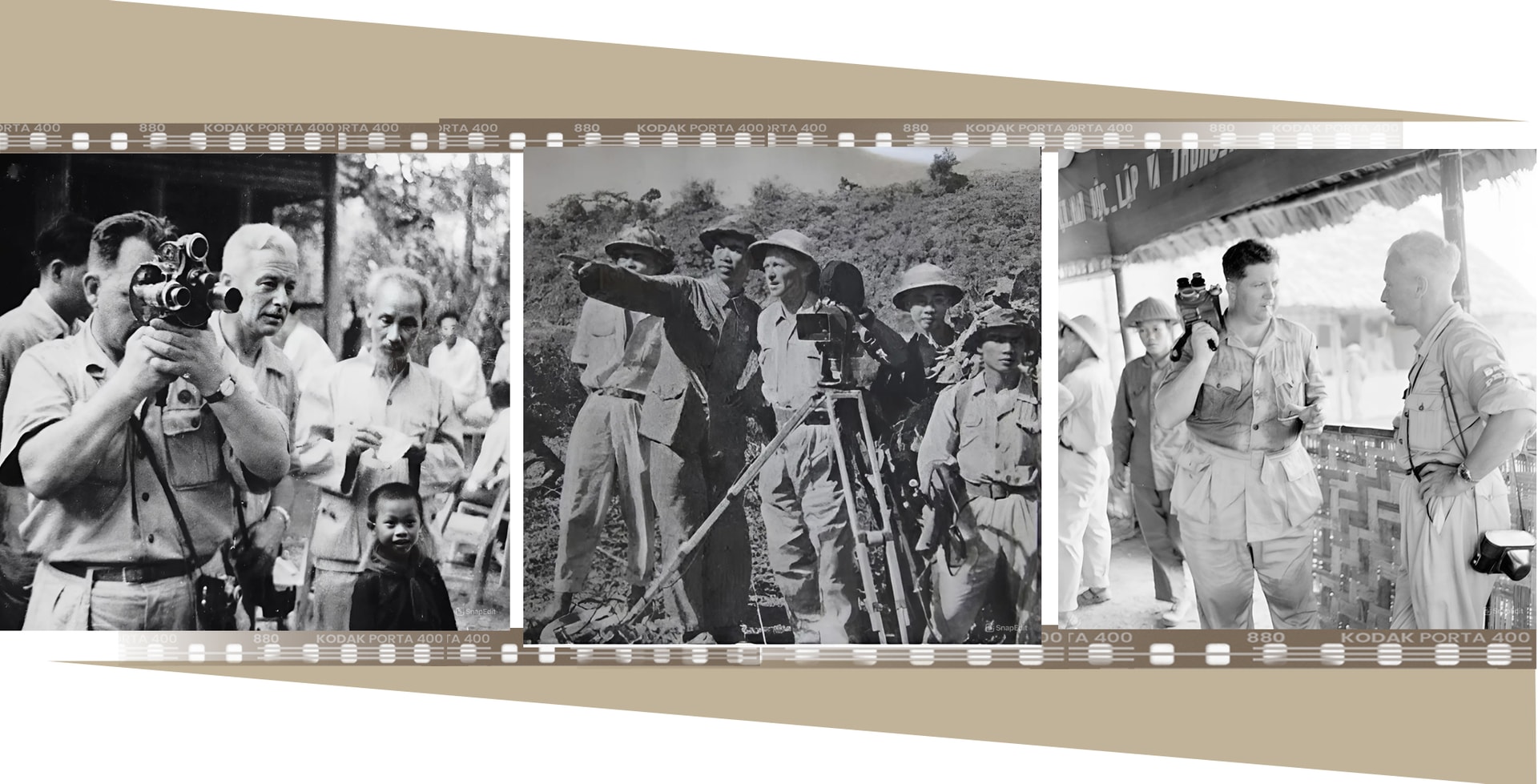
1. President Ho Chi Minh with Roman Carmen and Soviet filmmakers in the Viet Bac resistance base. 2. Director Roman Carmen (third from left) while making a film in Vietnam in 1954. 3. Filmmaker Roman Carmen (right) in Vietnam in 1954. Photo: Archive
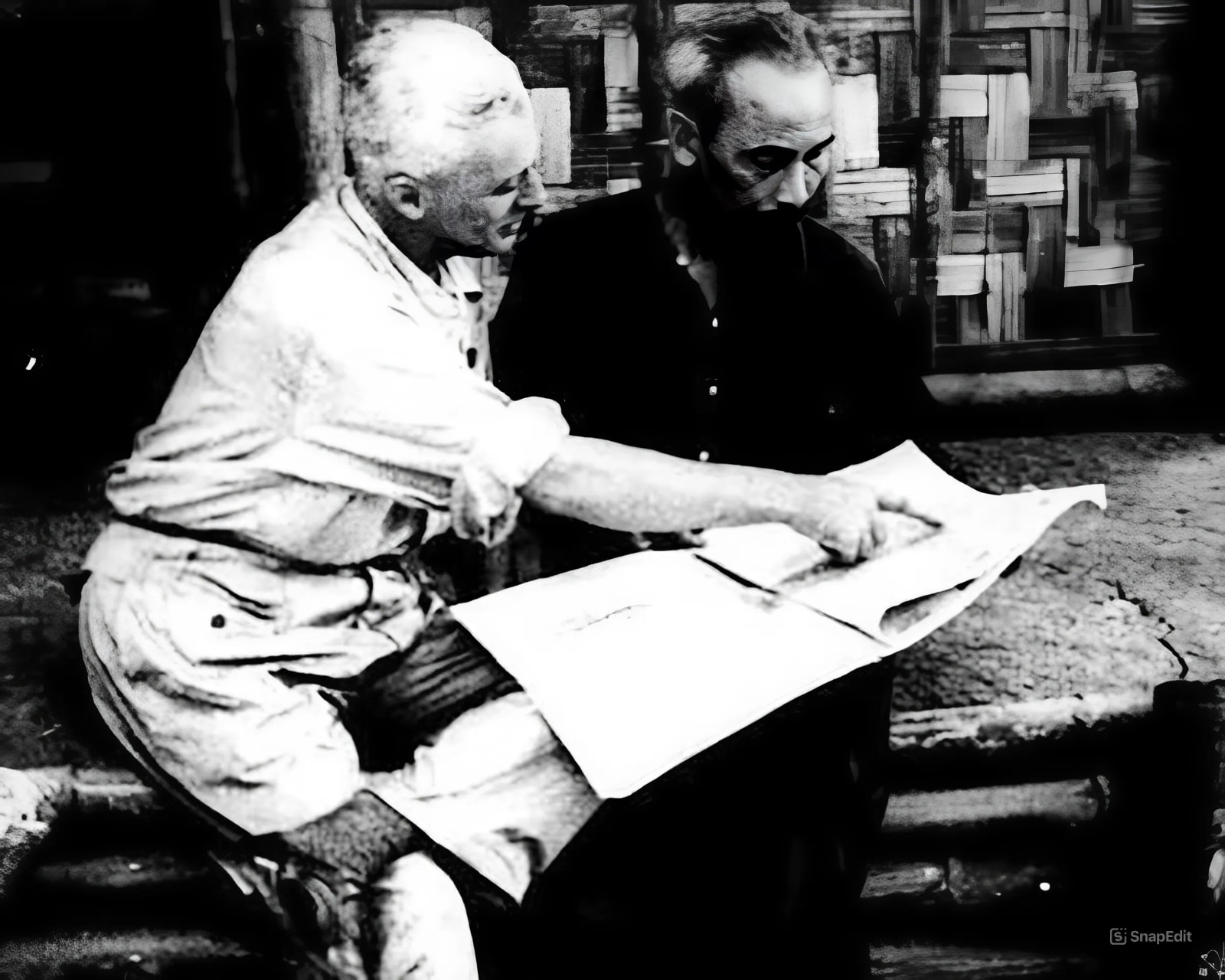
President Ho Chi Minh with director Roman Carmen at the Viet Bac resistance base. Photo: Document
To race against time, Soviet filmmakers divided into three groups, Roman Carmen stayed in the Viet Bac resistance zone, met and filmed the leaders of the Vietnamese people; Vladimia Eshurin's group went to the provinces of Zone IV to record the daily life of the people during the resistance war and Epghen Mukhin's group with the participation of writer Nguyen Dinh Thi went to Dien Bien to film the fight of the "undaunted, unyielding" soldiers. Vietnam (Vietnam on the Road to Victory) - an emotional artistic documentary by Soviet filmmakers began filming. And each member of the film crew tried their best to reflect the most authentically important historical moments, creating an epic about the resistance war against French colonialism of the Vietnamese people.
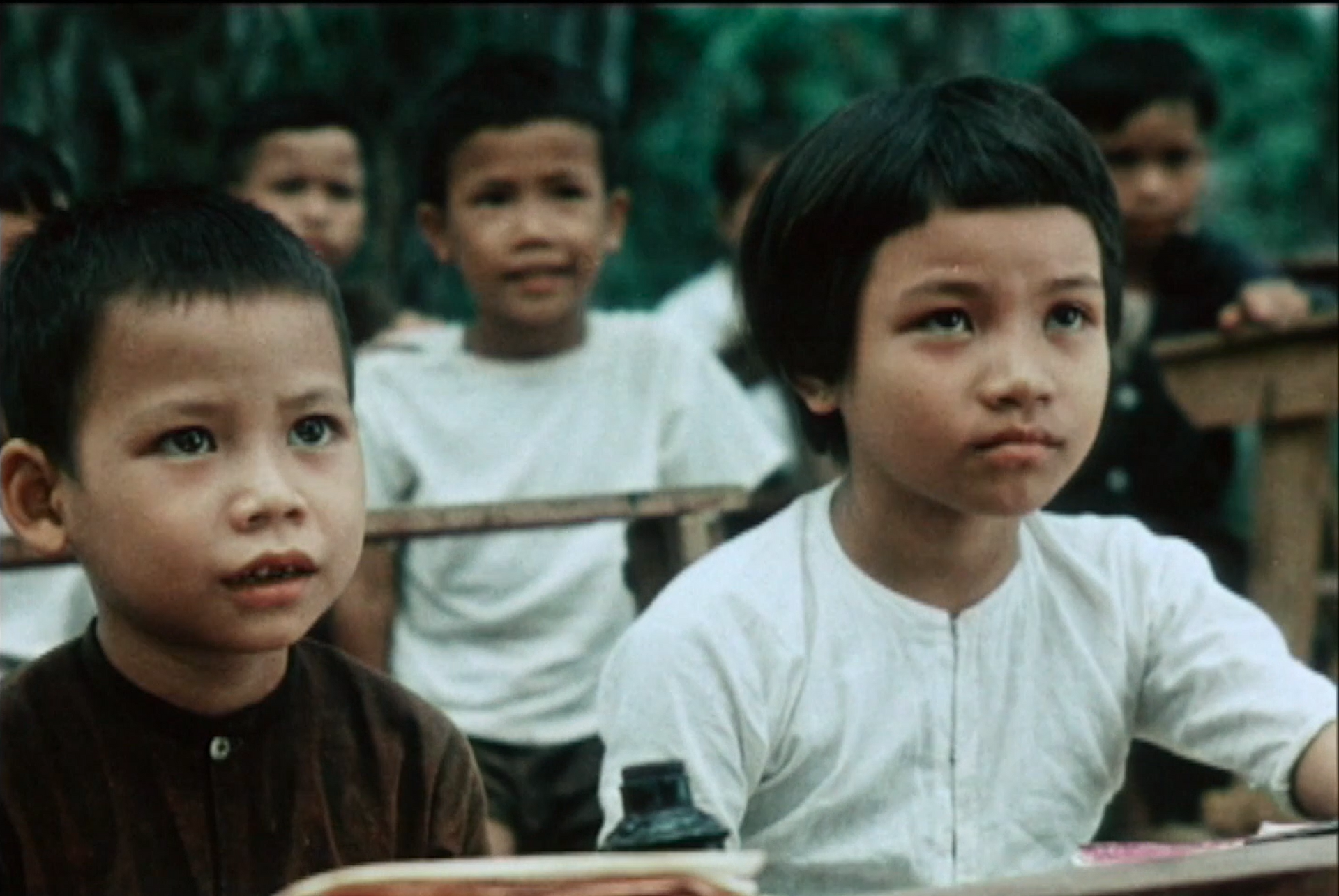
Children studying in the Viet Bac War Zone. Photo: Document – Roman Carmen
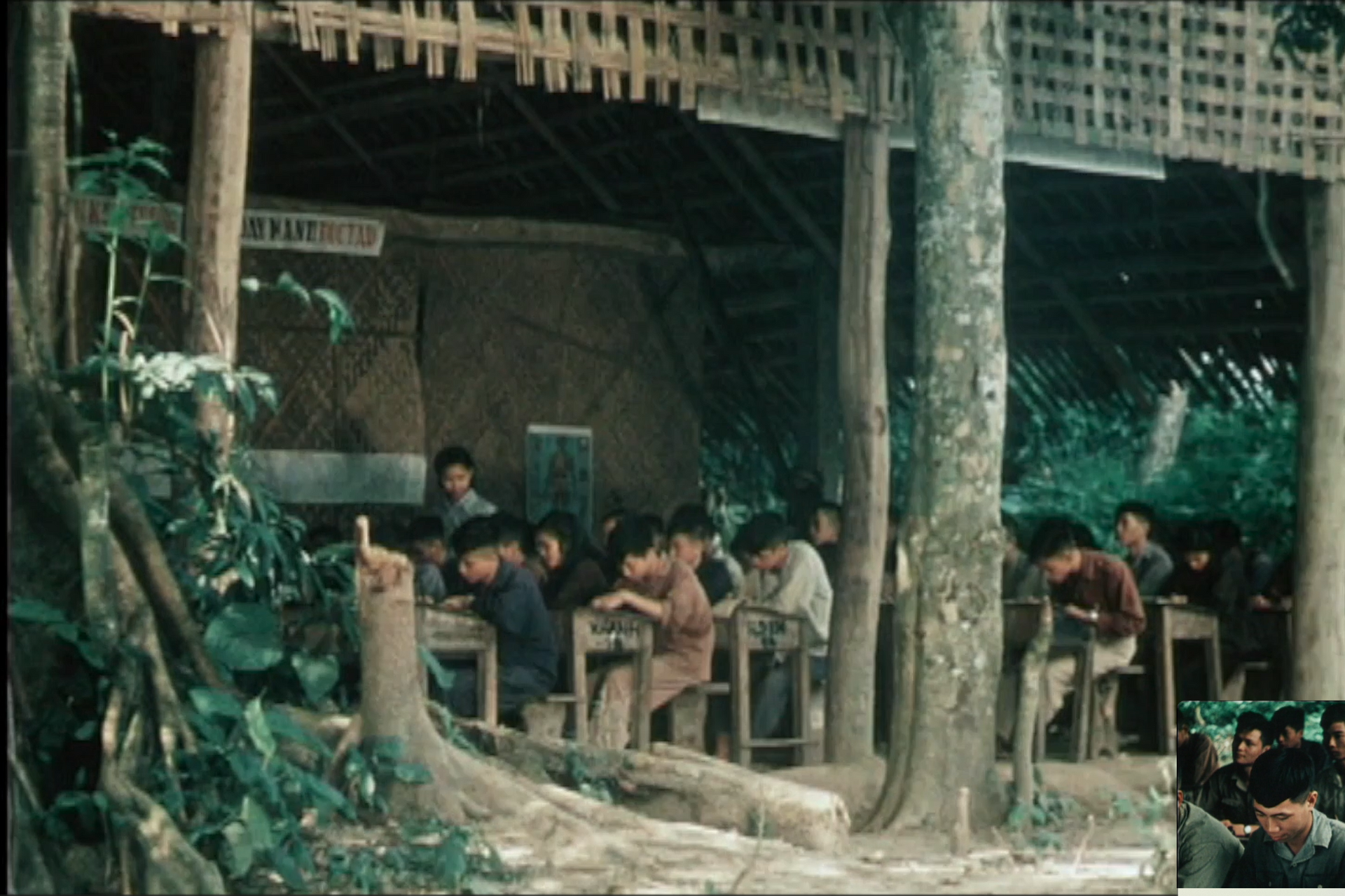
Popular Education Classes were held in the War Zone. Photo: Document – Roman Carmen
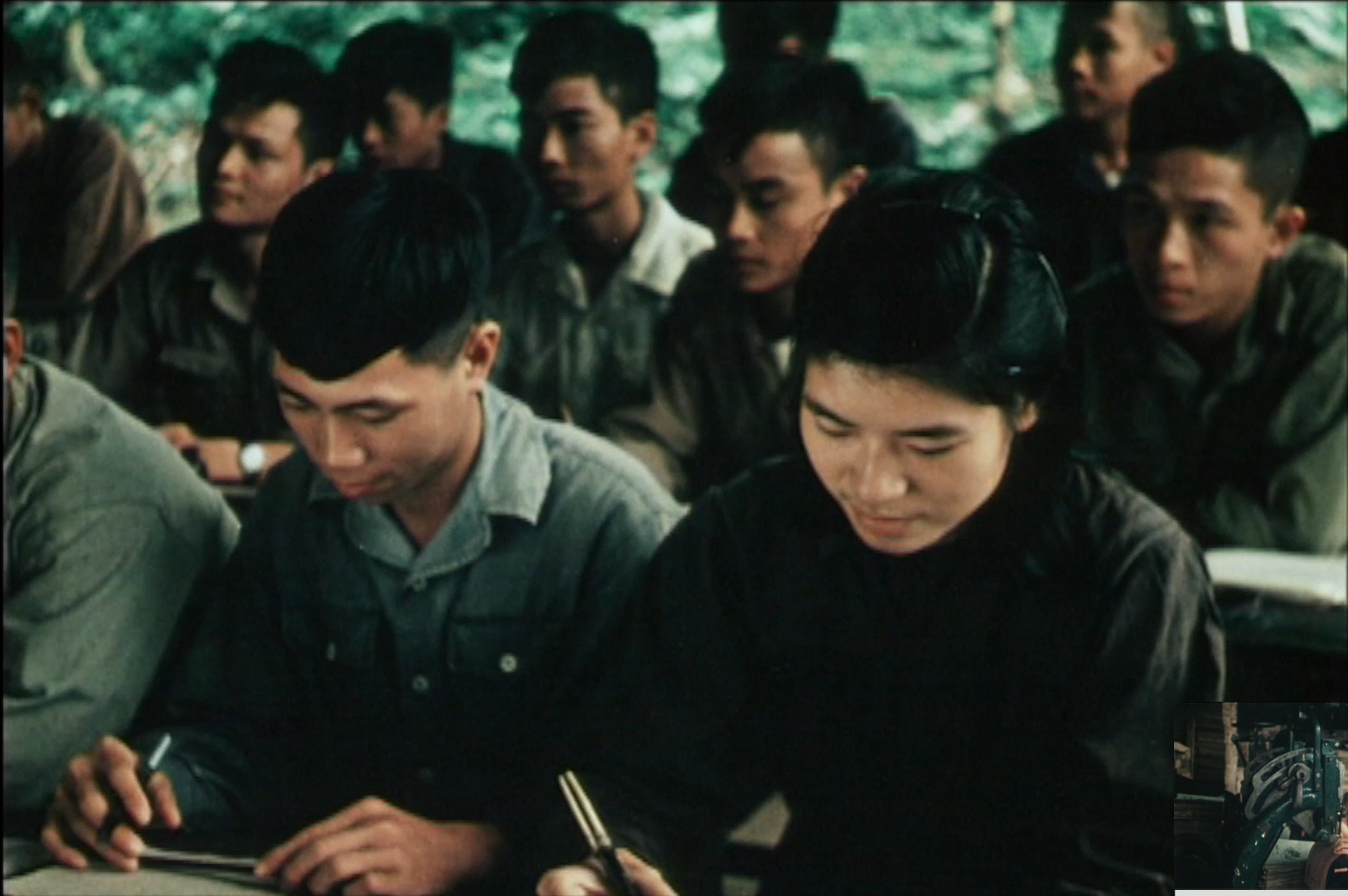
Soldiers and officers study attentively. Photo: Document – Roman Carmen
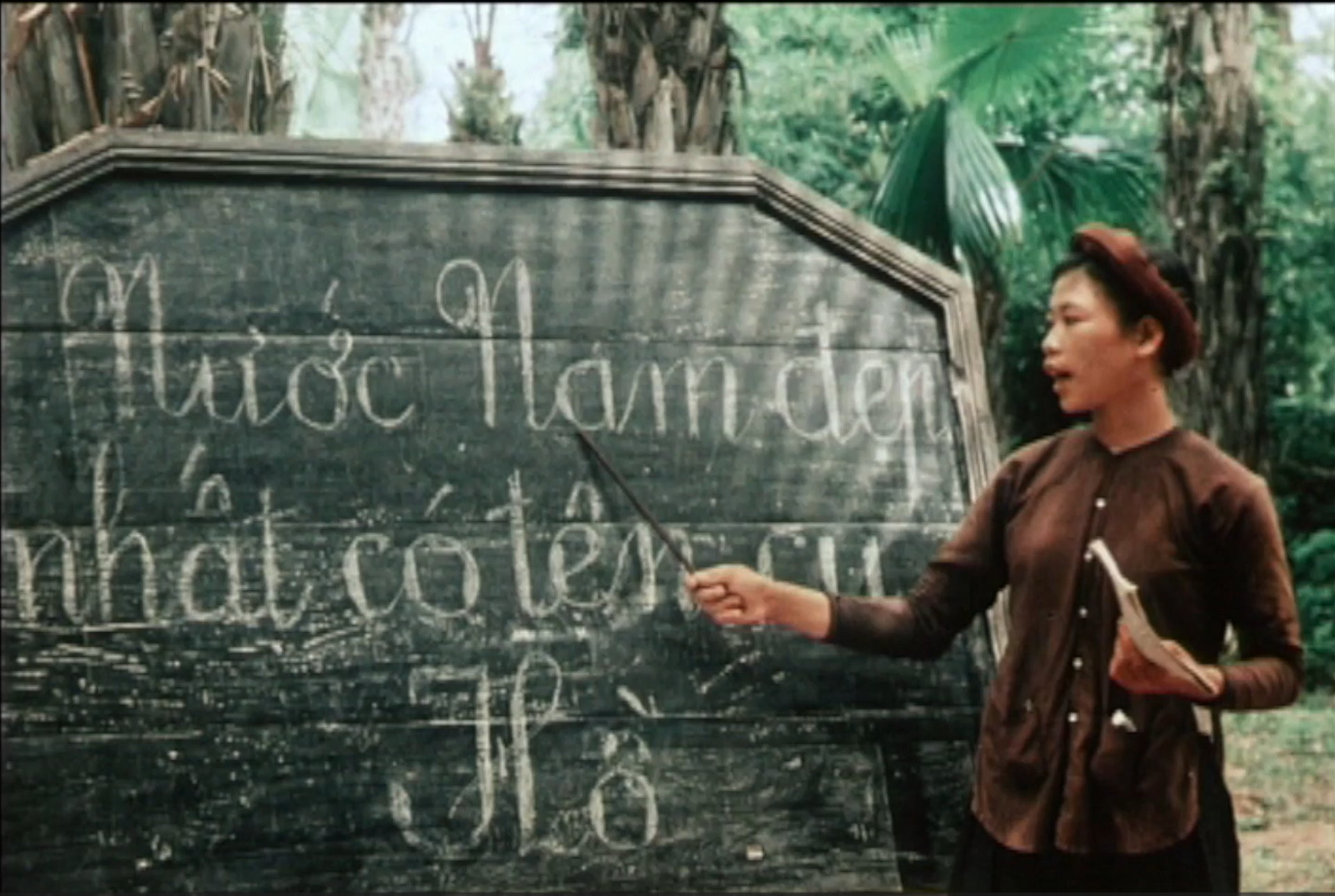
Teaching aids made from primitive materials. Photo: Document – Roman Carmen
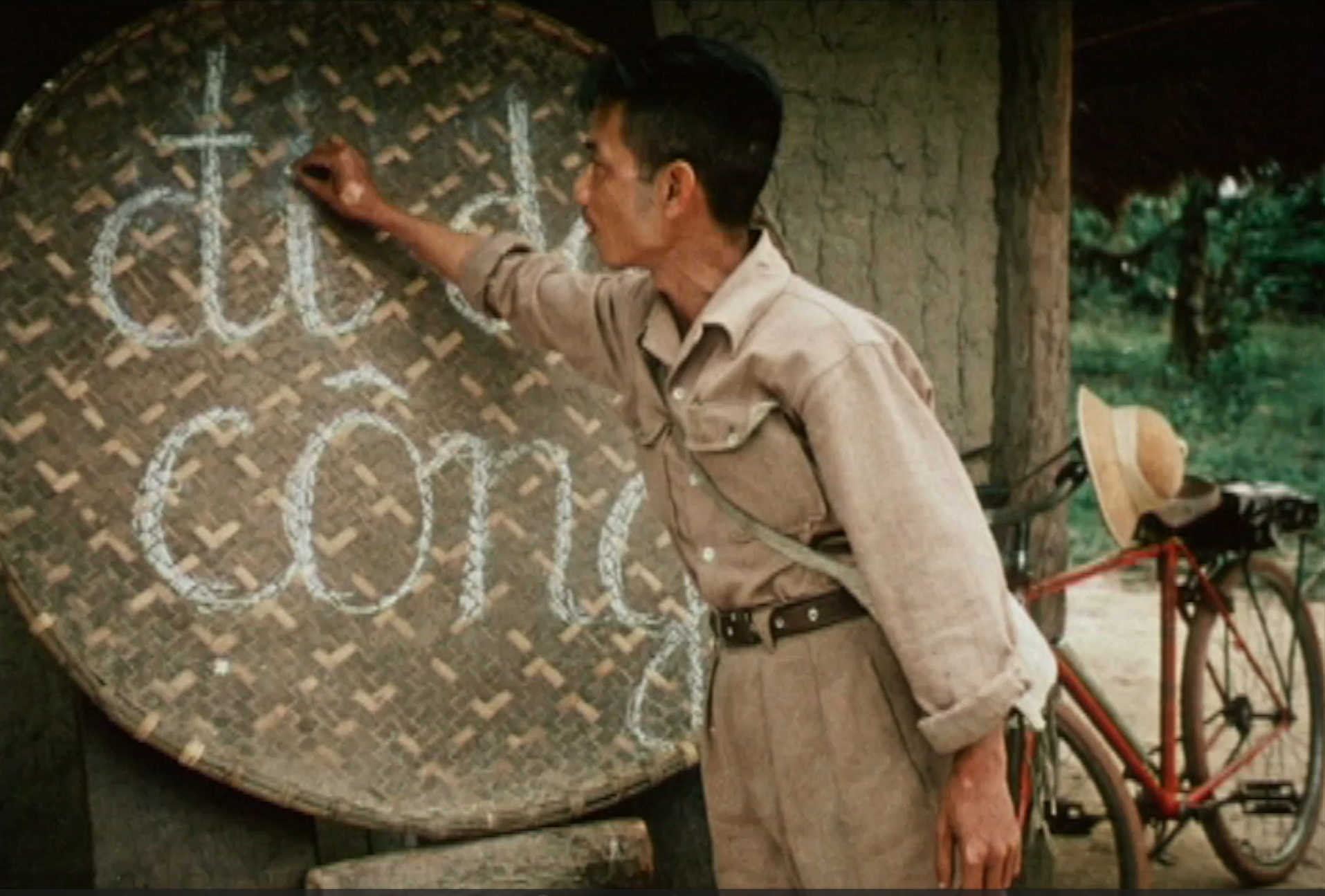
Teaching aids made from primitive materials. Photo: Document – Roman Carmen
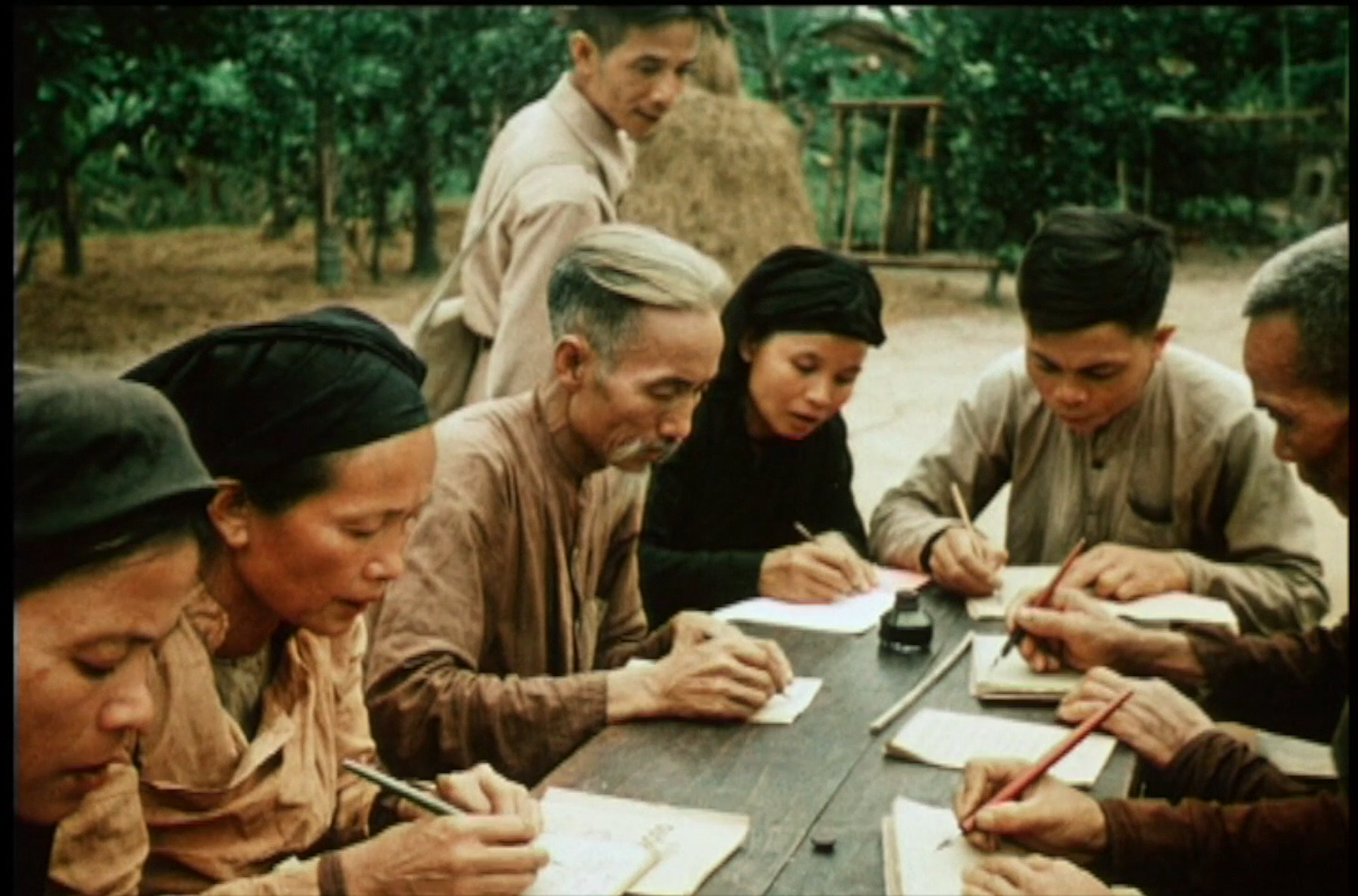
People of all ages and social classes are passionate about learning. Photo: Document – Roman Carmen
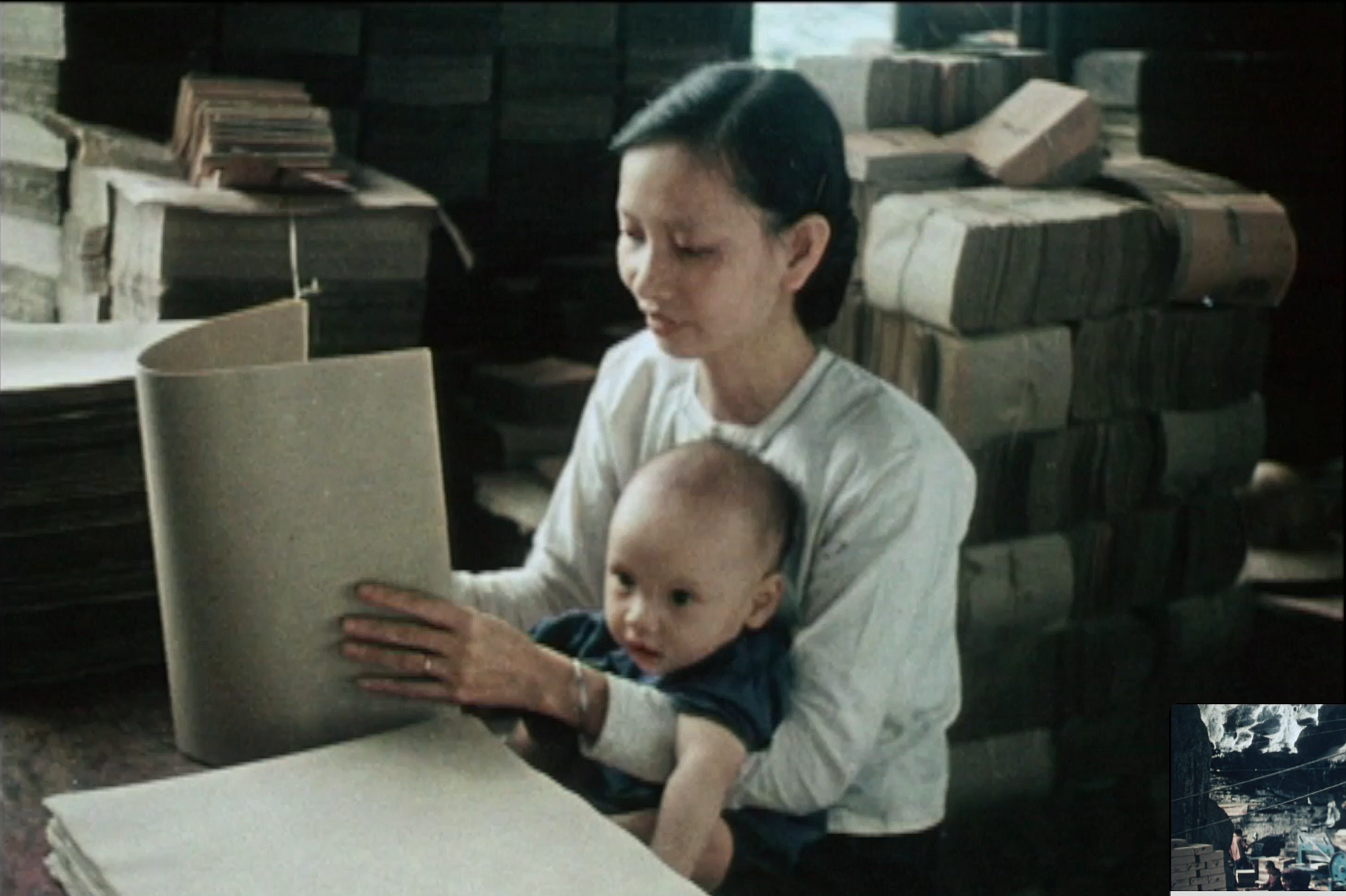
Producing paper for printing and propaganda purposes. Photo: Document – Roman Carmen
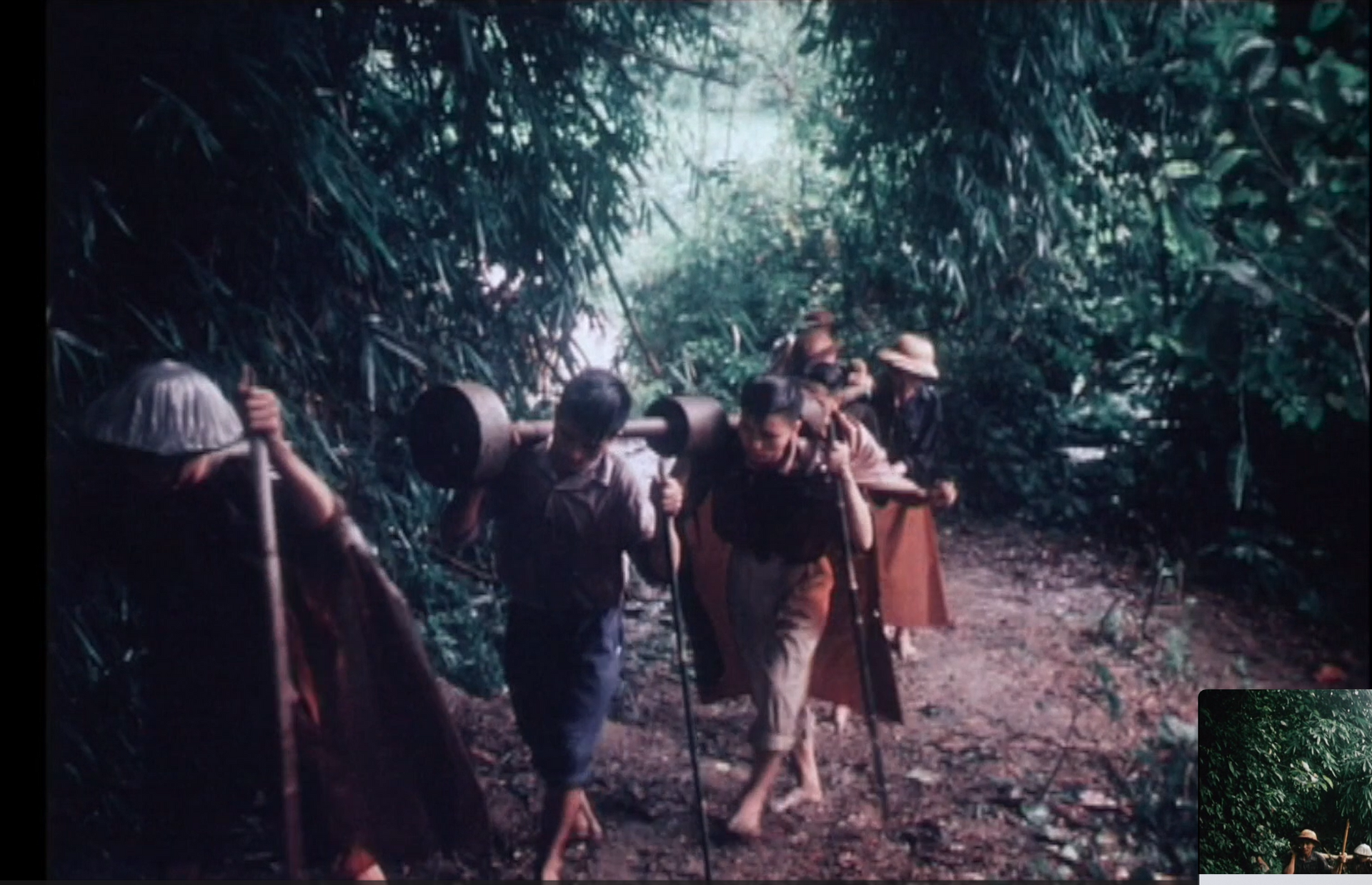
Soldiers marching in the Viet Bac War Zone. Photo: Documents – Roman Carmen
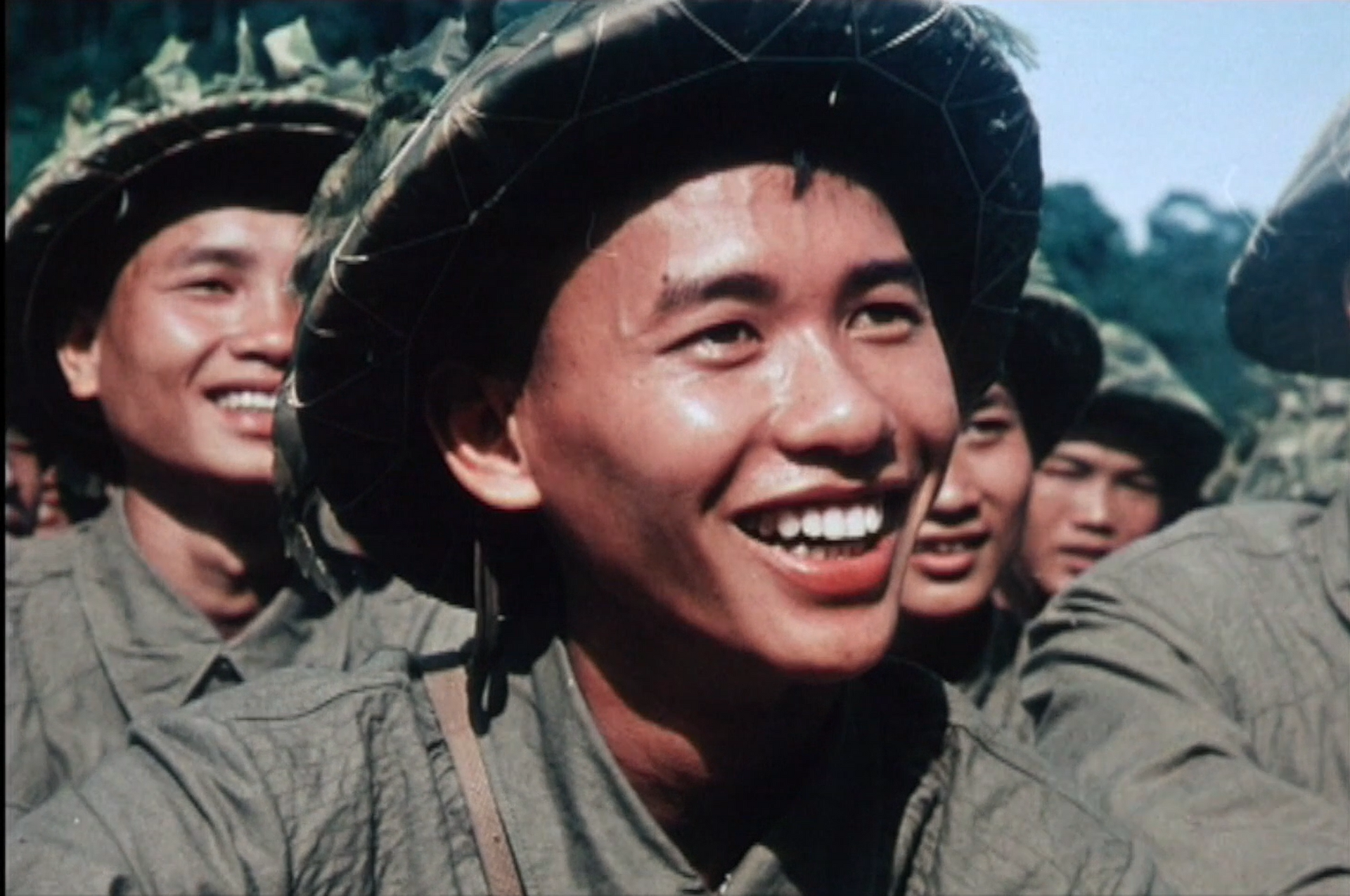
A soldier smiles while watching a performance in the war zone. Photo: Document – Roman Carmen
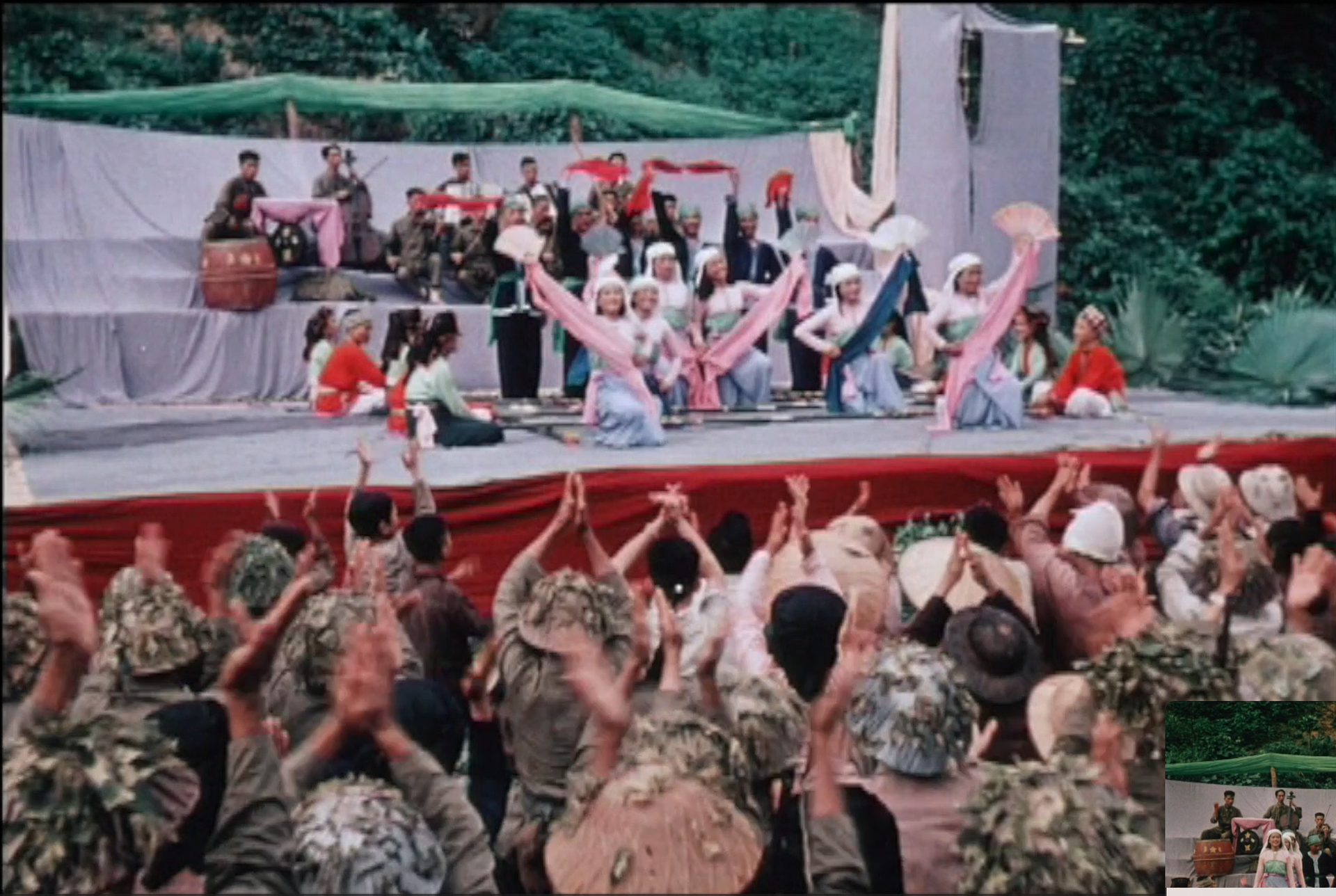
Photo: Document – Roman Carmen
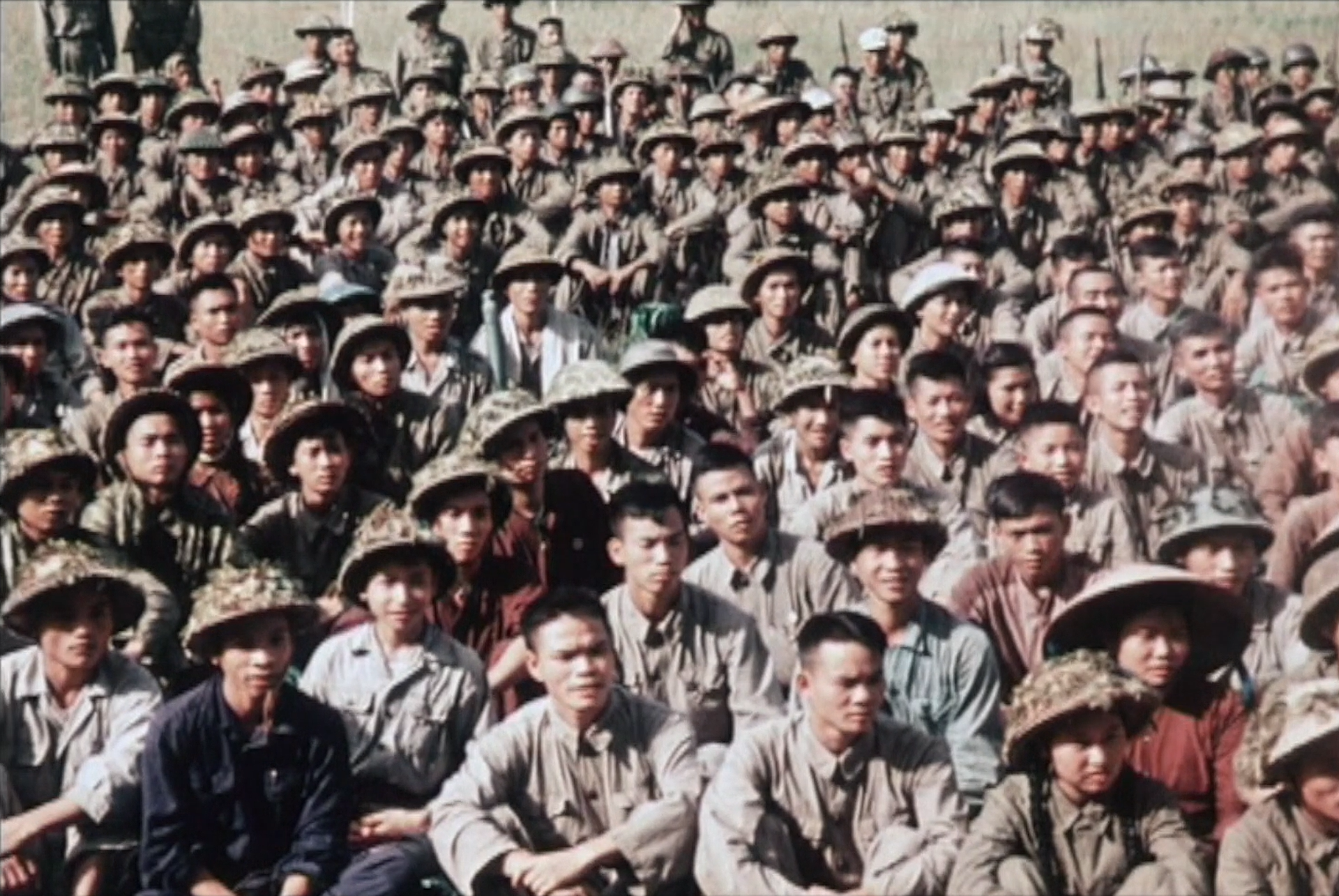
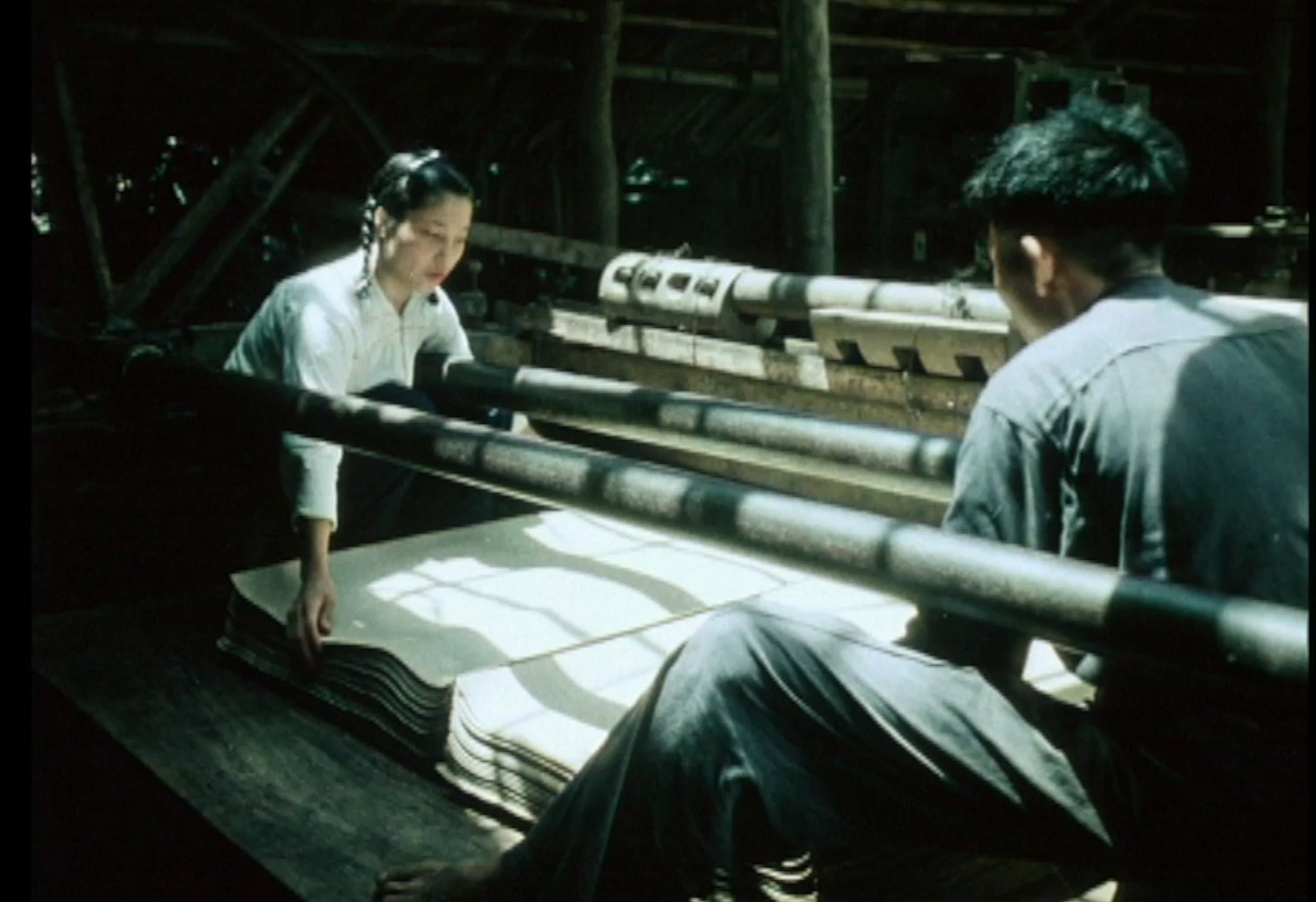
In the eyes of the film industry, Roman Carmen’s “Vietnam” is a war film that has touched the emotions and hearts of audiences with its historical truth. It is a smooth combination of real and staged scenes to create a strong attraction. Films of our army and people carrying machinery away from the capital to the forest to fight the resistance, General Vo Nguyen Giap in the bunker commanding the campaign, soldiers pulling artillery into the battlefield, battles of “blood mixed with mud”, our soldiers rushing forward, raising the victory flag high on the roof of the De Castries bunker…, or engineer Tran Dai Nghia manufacturing weapons in a small hut, Professor Ton That Tung performing surgeries in difficult conditions, Professor Dang Van Ngu creating penicillin water from mushrooms brought back from Japan, artist Tran Van Can painting propaganda paintings in the mountains and forests of Viet Bac… and the dances and songs of the Thai and Muong people, the poetic scene of pounding rice with streams of water… have brought an emotional historical truth about the “long-term resistance”.

Information and communication soldiers in the Viet Bac War Zone. Photo: Archive – Roman Carmen
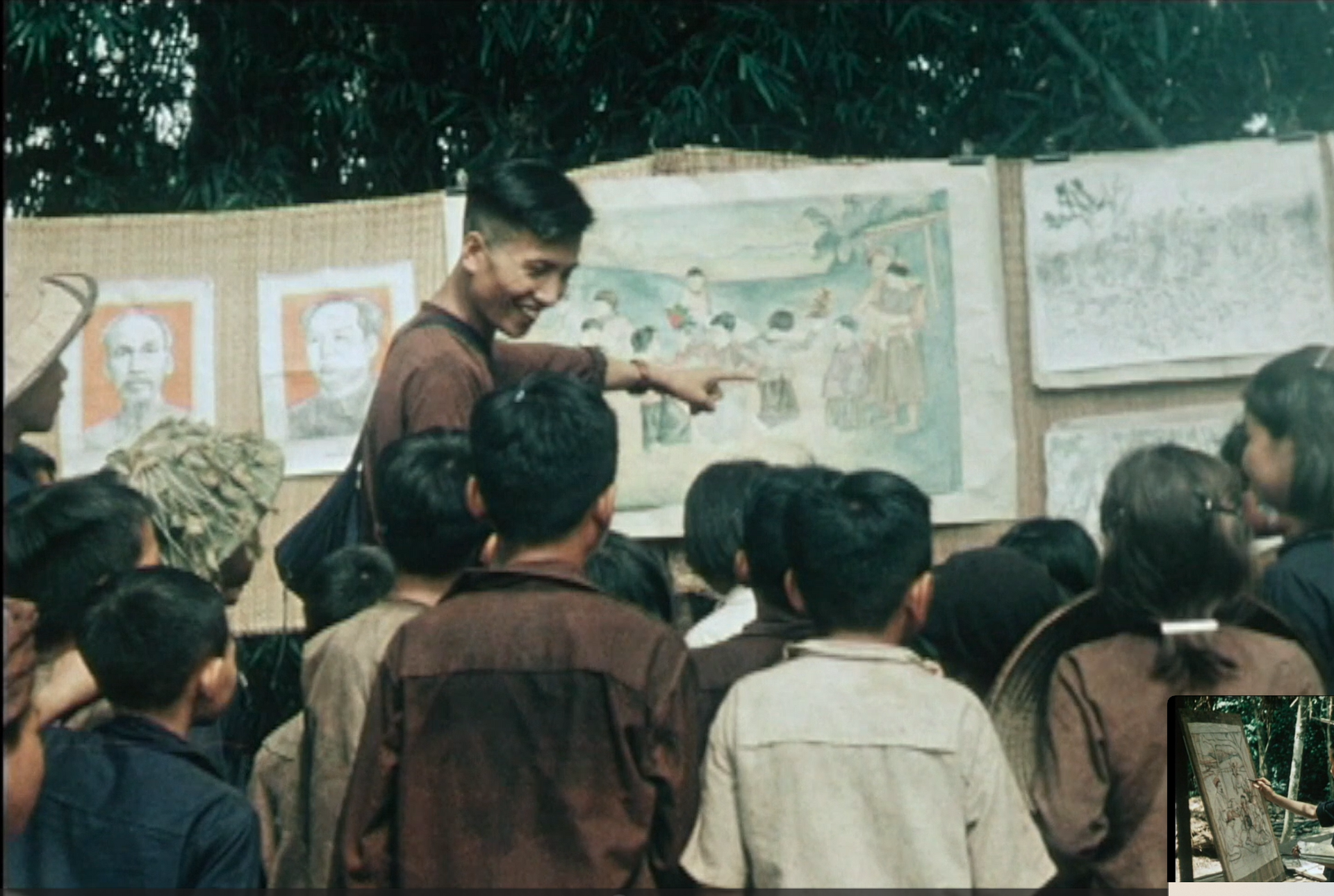
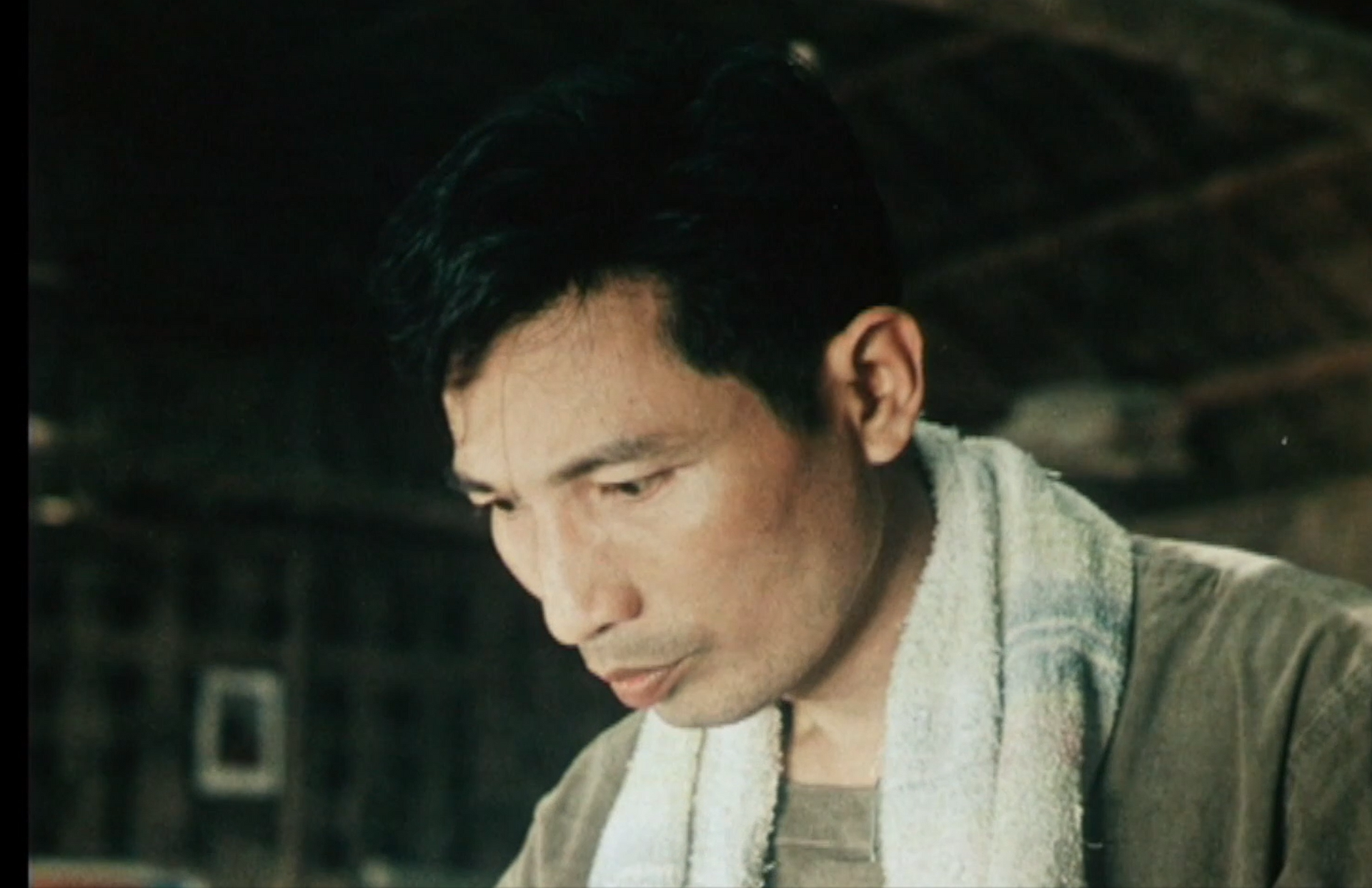

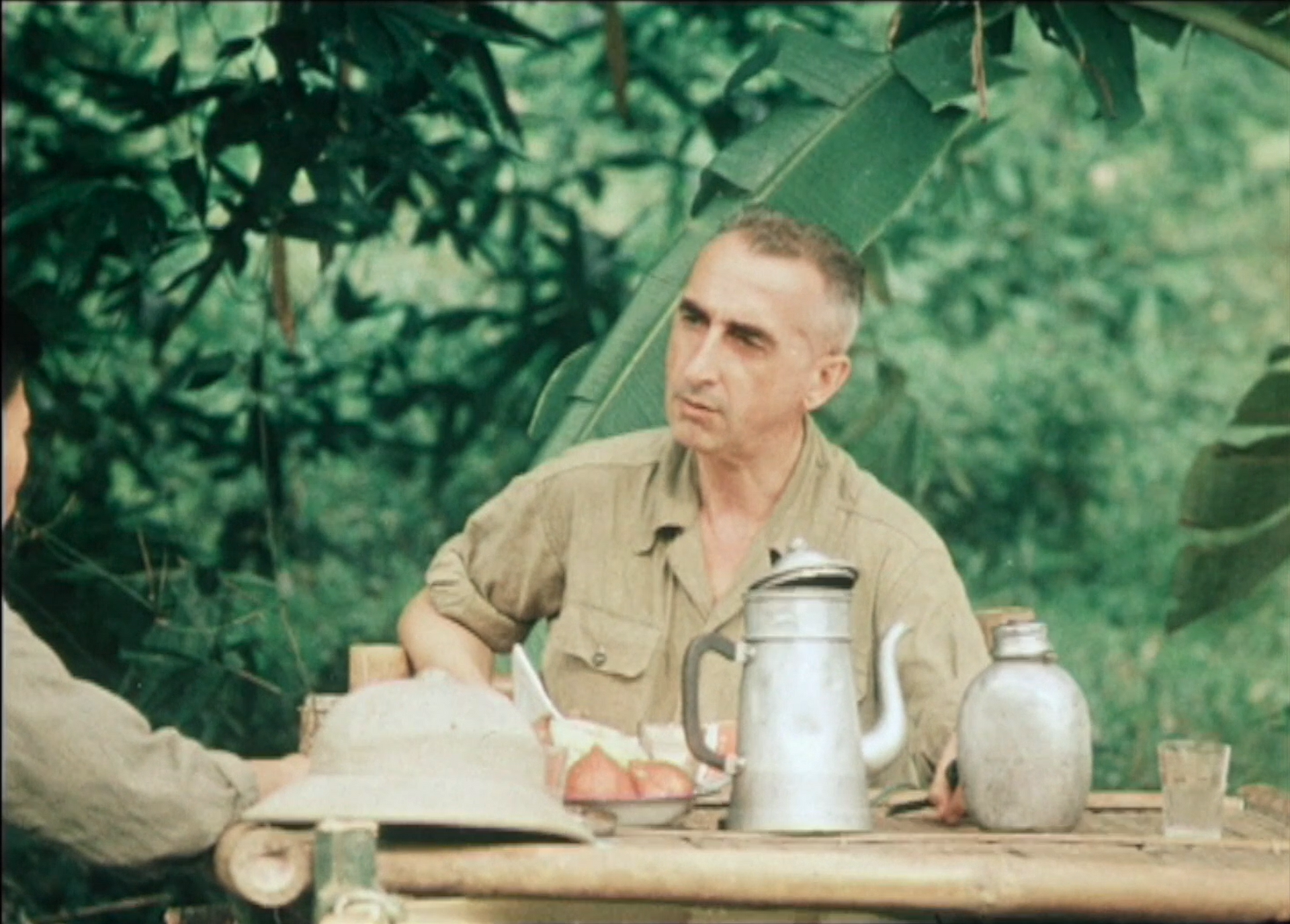
Director Roman Carmen films Major General De Castries at the detention facility in the Viet Bac resistance base. Photo: Archive – Roman Carmen
In this story, it is impossible not to mention the dialogue between Director Roman Carmen and Major General De Castries: “General, do you think that the defeat of the French expeditionary force at Dien Bien Phu marked the beginning of a series of future defeats? Did the defeat at Dien Bien Phu mark the collapse of the spirit of the French expeditionary force? Of course! I have not only said this now, but many times I have told Navarre: If you lose Dien Bien Phu, you will lose the war in Indochina. Regardless of the outcome of Dien Bien Phu, whether you win or lose, it will be the final outcome of the war.”
With the footage of the capture of General De Castries and soldiers raising the white flag in surrender at Dien Bien Phu, Dr. Anatoly Sokolov commented: "The scene of thousands of French prisoners of war marching through the lens is a symbol of French colonialism in Vietnam in particular and in the world in general."
Hanoimoi.vn
Source: https://hanoimoi.vn/phia-sau-nhung-khoanh-khac-lich-su-679194.html


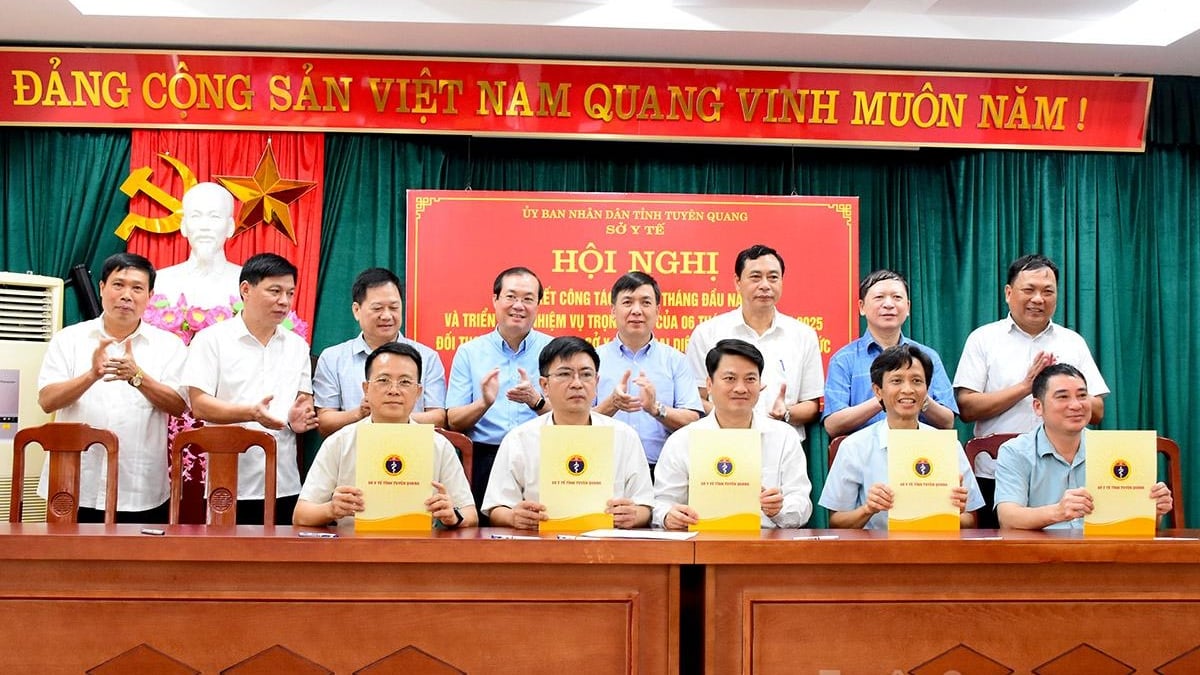
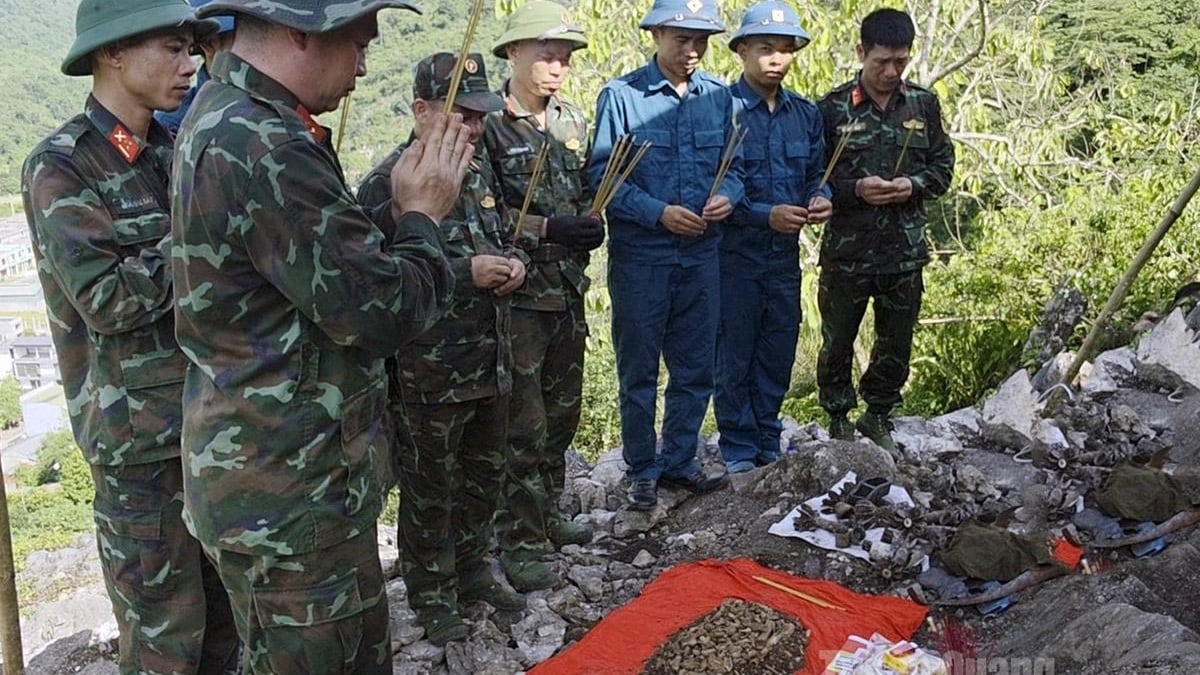
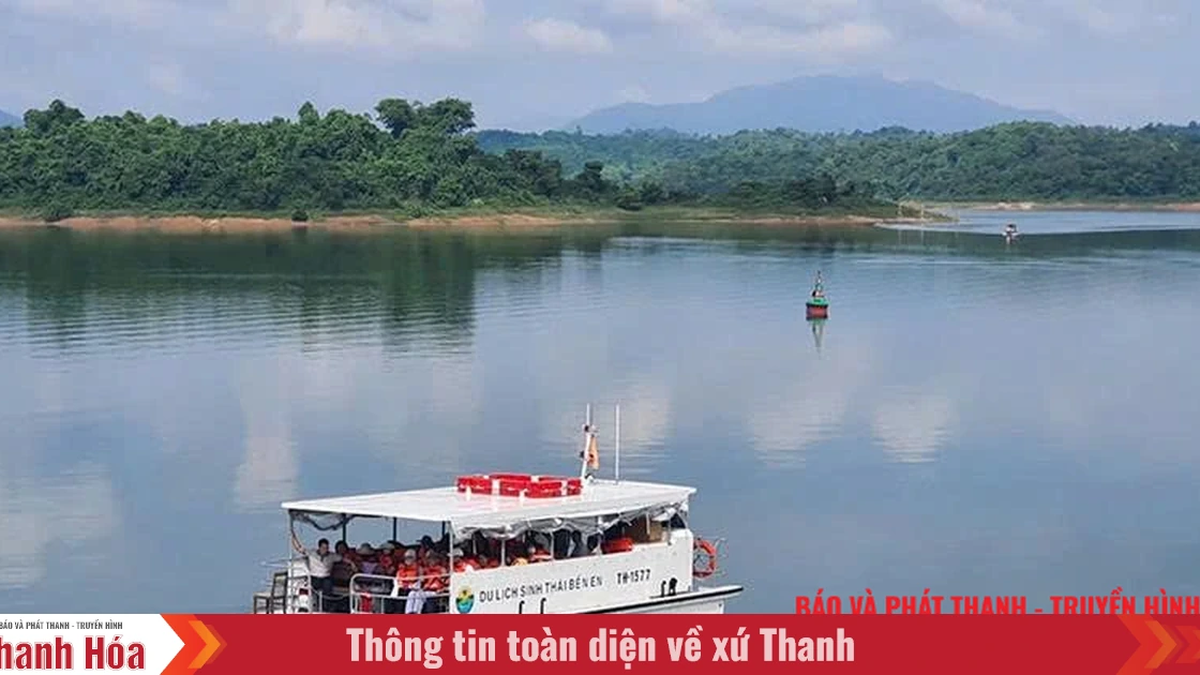


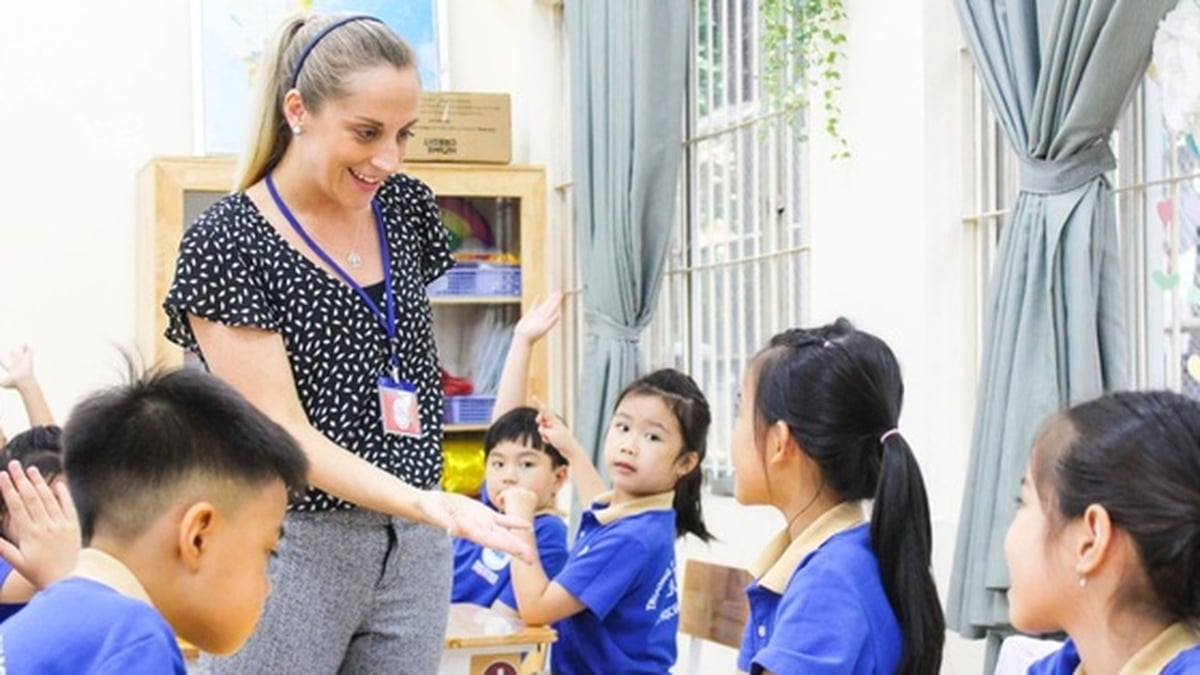
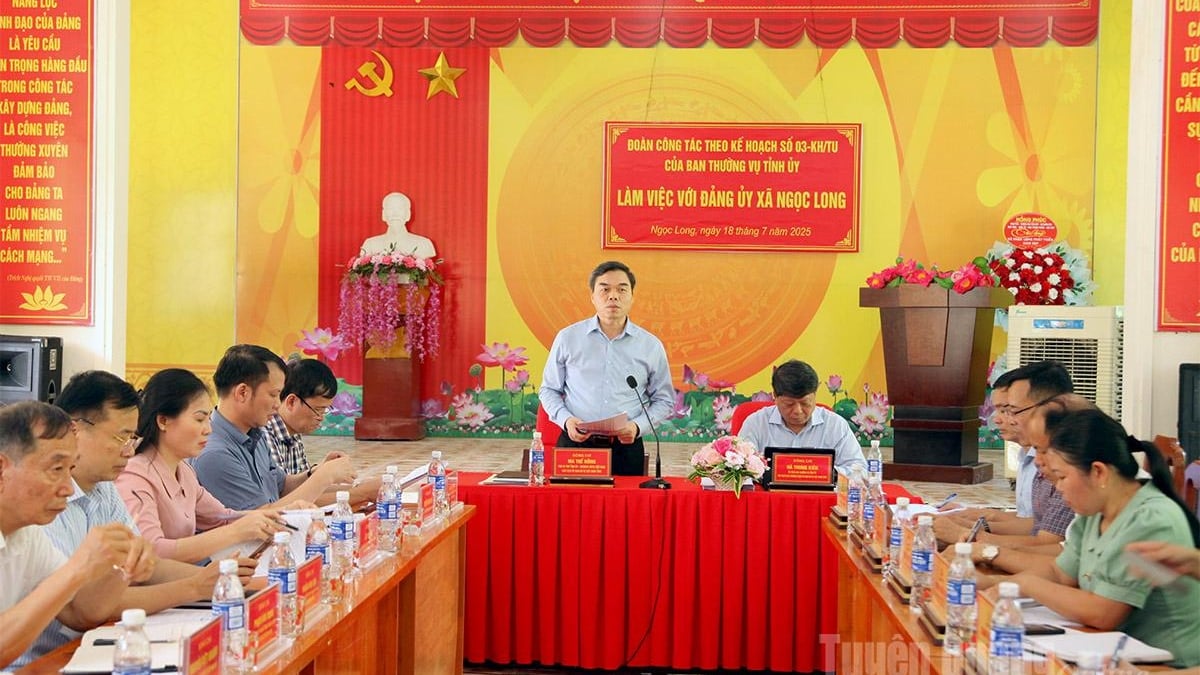
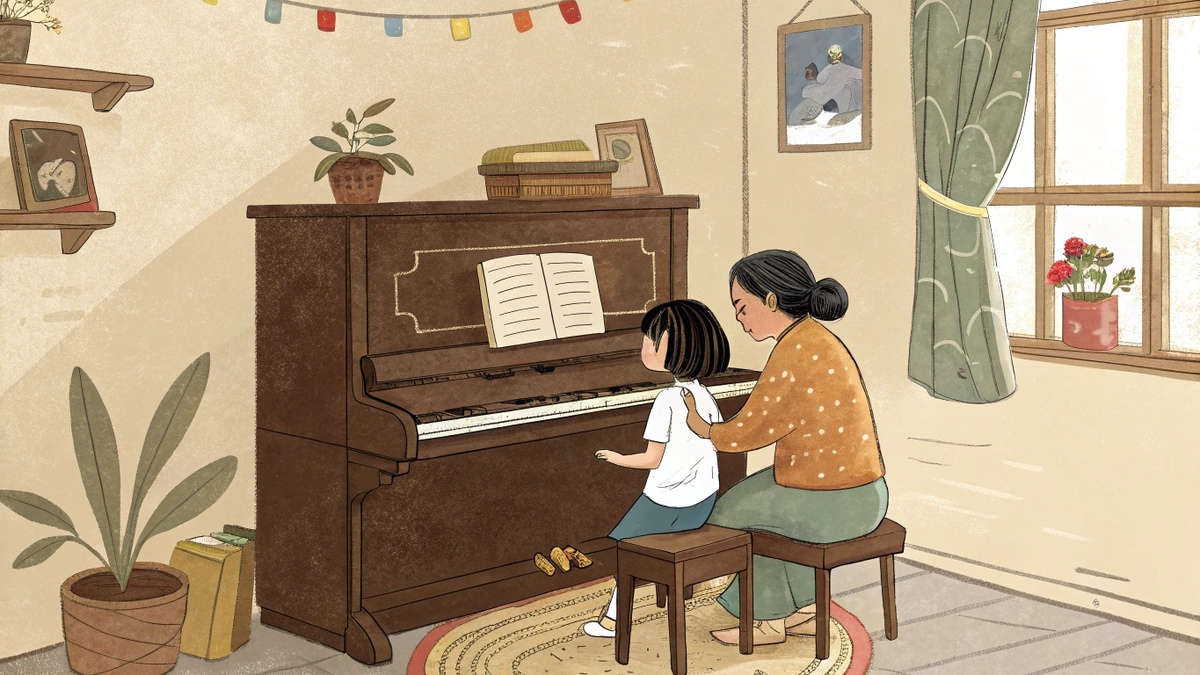
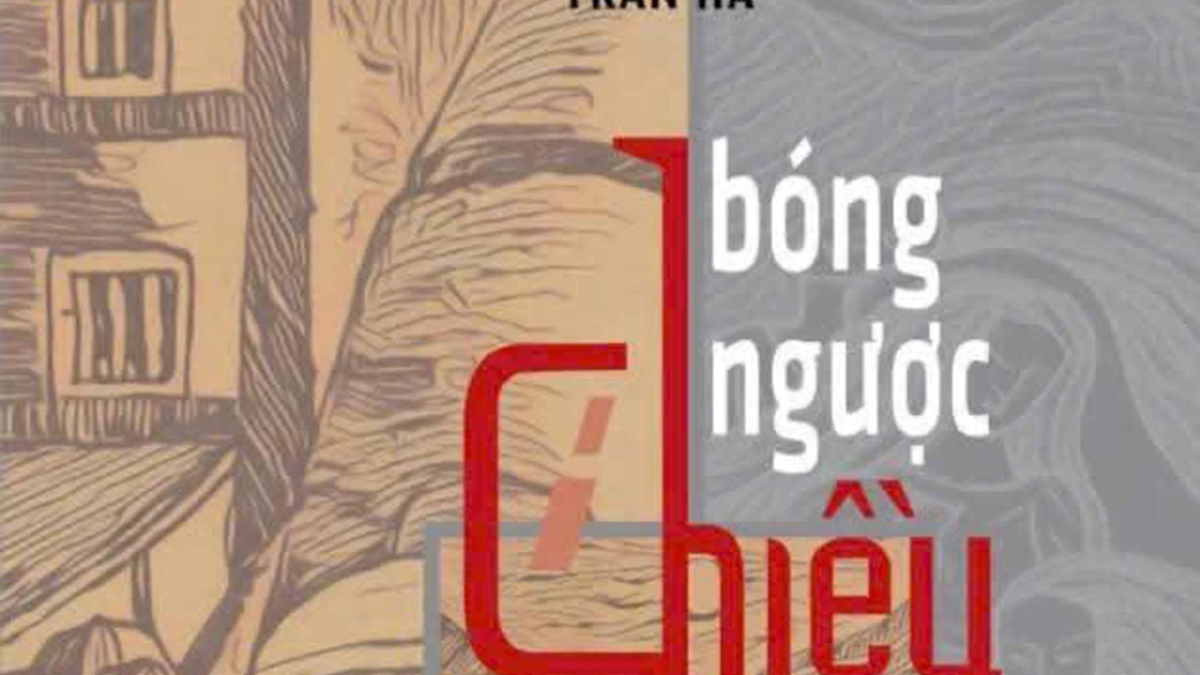
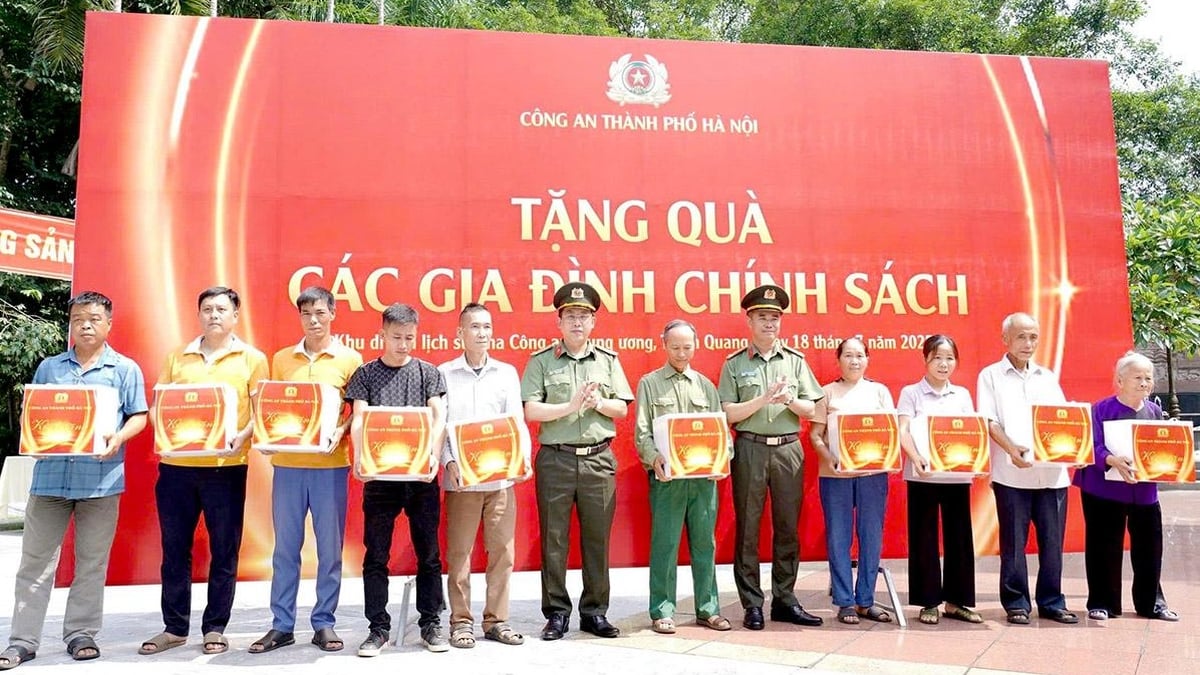

















































































![[Infographic] In 2025, 47 products will achieve national OCOP](https://vphoto.vietnam.vn/thumb/402x226/vietnam/resource/IMAGE/2025/7/16/5d672398b0744db3ab920e05db8e5b7d)





Comment (0)